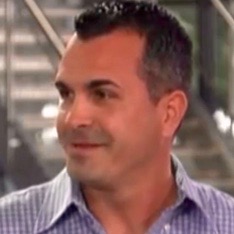 Joseph LaFratta
Rich hired LaFratta in 2004 after LaFratta, who would later admit he was a member of organized crime in Boston, had completed a federal prison sentence for stealing money from a Tufts University alumni fund.
Rich claimed that LaFratta ordered the office manager to transfer money from the law firm accounts to Rich’s personal accounts, and then wrote checks from the account. Rich told Salem police that LaFratta also made $50,000 in authorized charges on a law firm American Express card.
In April 2009, LaFratta went to trial in Essex County Superior Court and chose to have the case decided by a judge instead of a jury. Rich testified that LaFratta had stolen the money.
LaFratta claimed that that Rich had authorized him to spend the money for a joint business venture.
On April 14, 2009, after a one-day trial, Superior Court Judge Robert Brennan convicted LaFratta of three counts of forgery, four counts of uttering a forged check, and one count of larceny. Brennan sentenced LaFratta to two years in prison, but suspended the sentence and placed him on probation.
In May 2010, LaFratta was arrested on a probation violation and sent to prison. While incarcerated, LaFratta learned that Massachusetts state police had tapped his telephone and gotten records of the conversations. The records revealed conversations with Rich, which showed that Rich had in fact authorized the expenditures by LaFratta.
On June 1, 2010, LaFratta’s attorney filed a motion to vacate LaFratta’s convictions based on the prosecution’s failure to disclose the conversations prior to LaFratta’s trial. The motion said that Rich “testified falsely at trial and was engaged in a business venture with Mr. LaFratta.” The defense attorney claimed that “the totality of the telephone calls will show an authorization from attorney Rich to LaFratta to access all funds.”
LaFratta was released on bond that same day.
On October 10, 2010, Judge Brennan granted the motion and ordered a new trial based on the prosecution’s failure to disclose the evidence. On November 4, 2010, the Essex County Prosecutor’s Office dismissed the charges.
In 2012, LaFratta filed a claim for compensation from the state of Massachusetts, but the claim was denied.
– Maurice Possley
|